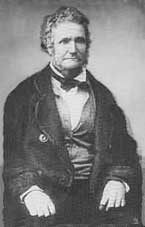Martin Cash Motel
Who’s Martin Cash?
An Introduction to Martin Cash
´The Uncensored Story of Martin Cash´
(Author: J.D. Emberg & B.T. Emberg, 268 pages)
“Martin Cash is a love story. It is a true story of daring and adventure and the will to survive.”
The last of the notable convict-bushrangers of early Tasmania, Martin Cash is credited with having been one of the most gallant and romantic, and is often referred to as “the Robin Hood of Van Diemen´s Land”.
Cash arrived in Tasmania as a free man – young, handsome and impetuous – he soon found himself on the wrong side of the law, and was duly sentenced to seven years hard labor. . . . for stealing eggs!
Cash escaped on three occasions, culminating in a daring escape through shark infested waters from the notorious Port Arthur Penal Settlement.
Cash and his two accomplices (Kavanga and Jones) then led short but spectacular and daring careers as bushrangers, based from their fortress hideout high on Mt Dromedary, just North of Hobart.
During an eight month period these three formidable men who had bolted from an “escape proof” prison, committed more than 40 armed robberies, tramped over 1600 kilometres, dominated an area of over 12,000 square
Kilometres and successfully defied more than 500 constables and soldiers sent to bring them down. The men were never killed except by chance at the end, and only by accident. At the same time, their gentlemanly behavior triggered a press campaign to pardon them, and motivated many of their influential victims to intercede with the authorities on their behalf.
Cash and his gang were finally captured in Hobart, after being betrayed by Bessie, the woman he loved. During the final shoot out, Cash fatally wounded a young constable and was duly sentenced to hang. Following persistent public pressure, Cash received a reprieve only an hour before he was due to hang, and was duly transported to Norfolk Island for life.
Cash became a model prisoner, eventually became a constable on the island, and married a freed convict woman. After 10 years, he was pardoned, returned to Tasmania and lived a happy and contented life on his farm at Glenorchy.